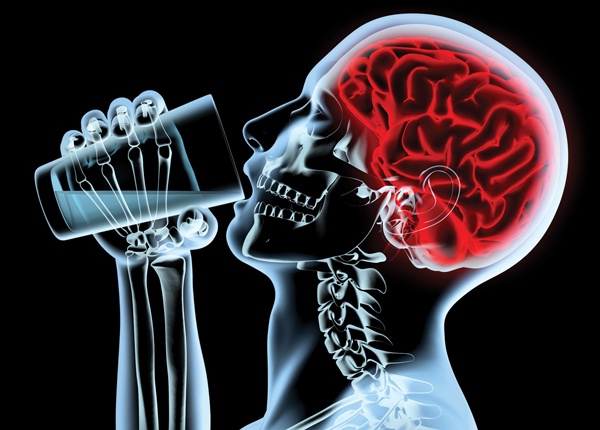
Alcohol’s Effect on Cognition: DUI & DWI Awareness
Updated Dec. 25, 2020Cognition is the mental process of collecting information, forming thoughts and making decisions based on what you know. If any aspect of the cognitive process is impaired by alcohol while you’re driving, you are likely to make unsafe decisions, endangering yourself, your passengers and all other road users nearby.
As we know, alcohol has a negative impact on your physical well-being. You may not realize that it also has quite a profound detrimental effect on your psychological health. These effects can occur the very first time you consume alcohol and are likely to worsen the more often you drink. For example, alcohol can cause:
- Mood swings, leading to exaggerated feelings of happiness, depression, anxiety and anger.
- Compulsive behavior, whereby you feel unable to control your own actions.
- Impaired reasoning ability, leaving your brain unable to process information accurately.
- Impaired judgment, leading you to make the wrong decisions with the information you have.
- Poor concentration, making it difficult to pin down one thought process from start to finish.
Alcohol’s combined effects on mood and cognition make it an extremely dangerous drug. While intoxicated, your extreme mood may lead you to miss important information on the road or perceive things incorrectly. What information you do have is likely to lead to bad decisions, as your brain’s thinking and acting processes are disrupted.
Alcohol consumption among minors
Alcohol consumption can have a detrimental effect on any person’s mental and physical well-being, though it is particularly damaging for minors. Laws against underage drinking are not in place to stop you from having fun, they are there to protect you. While a person’s body is still developing (women generally reach full maturity in their late teens, while for men it's usually their early twenties) their internal organs will be more vulnerable to the negative effects of alcohol. For this reason, minors often become intoxicated faster, more severely and take longer to recover.
Emotional and psychological maturity also play a big part in how a person reacts to alcohol. Teenagers and young people often do not have the necessary life experience to control their emotions and will be more susceptible to making bad decisions when drinking.
The effects of alcohol on mental skills
There is a reason that people are prone to stupid or dangerous behavior while under the influence of alcohol. A sane and sober person wouldn’t dream of endangering themselves by jumping from a roof into a swimming pool or climbing over a fence into a construction site or speed racing their friends on an empty stretch of road, but we hear of intoxicated people doing these things all the time! Alcohol’s effect on thought and judgment is the reason these things happen. The way you behave is a direct reflection of your intelligence, memories, personality and state-of-mind. When these things are chemically altered by alcohol, your behavior changes too.
While every person responds to alcohol slightly differently, there is enough evidence to say that most intoxicated people:
- Are more prone to aggression. Even people who are not at all aggressive when sober!
- Have less control over their emotions. While intoxicated, people succumb to feelings of love, rage, despair and excitement in a way that they never would while sober.
- Have trouble remembering important information. A BAC as low as 0.03% has been shown to disrupt the recollection process.
- Have serious trouble paying attention. This is why friends often lose each other on alcohol-fueled evenings out or tune out half-way through a drunken conversation. You do not want this to happen to you while driving!
The main thing to take away from this module is that you cannot predict how you will behave under the influence of alcohol. You may be a responsible, mature and easy-going young adult in everyday life, only to become aggressive, reckless and a danger to everybody around you when intoxicated. Alcohol changes your brain, and therefore, your behavior. The only way to guarantee your safety is not to have ANYTHING to drink if there is a chance you will later be driving.




